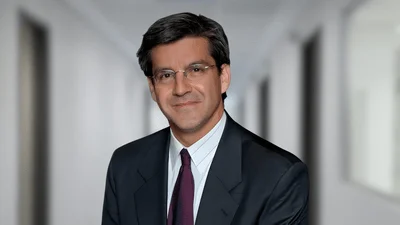Fort Crevecoeur | http://www.ftcrevecoeur.org
Fort Crevecoeur | http://www.ftcrevecoeur.org
Jan. 15, 1680 – Illinois. French explorer Robert de La Salle founds Fort Crevecoeur. Although the precise location of the 17th century explorer’s fort is not known, the Pekin Public Library quotes archival documents that locate it near Peoria Lake. The library’s website, “From the History Room,” goes on to say that the fort played a key role in French fur trade.
Jan. 16, 1836 – Chicago. First railroad in Chicago established. Although it never reached the first of its namesake cities, the Galena & Chicago Union Railroad nevertheless “set into motion many economic benefits” for the region, according to the website NorthwestChicagoQuarterly.com. Driven by farming, lumber and lead mining interests, the railroad stalled in 1838 after the death of its 25-year-old president, but resumed a decade later when stock options were offered. By 1852, trains were running on the G&CU tracks, and by 1864, it had merged with the Chicago and North Western Railway.
Jan. 17, 1920 – Chicago. The Volstead Act became law. Enacted to carry out the 18th Amendment, which made the U.S. a "dry" country, the Volstead Act laid the groundwork for organized crime to flourish in Chicago, according to “The Corrupt City,” a research project hosted on the University of Michigan’s website. Bootlegging and smuggling alcohol meant easy money for the city’s influx of immigrants, which dwarfed the police force that was unable to check the growing black market, according to the University of Virginia’s website. In that environment, Al Capone rose to power, backed by an army of 700 henchmen who “convinced” local speakeasies to sell his brand of alcohol.

Michelle Obama
| Joyce N. Boghosian/Library of Congress
Jan. 17, 1922 – Oak Park. Actress Betty White was born. Though best known for her Emmy-winning turn as Rose Nyland on “The Golden Girls,” White’s career began decades before that 1980s role, according to Biography.com. From her guest shots on Jack Paar’s ”Tonight Show” and on the game show “Password” with husband Allen Ludden, White graduated to “The Mary Tyler Moore Show,” where she earned two Emmy awards as the feisty Sue Ann Nivens.
Jan. 17, 1964 – Chicago. Former First Lady Michelle Obama (nee Robinson) was born. Though she made history and headlines as the nation’s first African-American first lady, Obama was a practicing lawyer and city government official long before. A 1988 Harvard Law School graduate, Obama worked in the administration of then-Mayor Richard Daley. Roles as associate dean of student services for the University of Chicago, and vice president for community and external affairs at the University of Chicago Medical Center followed, according to Biography.com, no doubt preparing her for her White House focus on education, poverty and healthy living.
Jan. 18, 1939 – Chicago. Phil Everly, one-half of the seminal rock and roll duo The Everly Brothers, was born. Though Everly cut his teeth on the bluegrass and country tunes his ex-coal-miner father played, he and brother Don earned their fame belting out early rock and roll classics, as Biography.com reports. Hits like “Bye Bye Love” and “Wake Up Little Suzy,” cemented Everly’s place in music history.
Jan. 19, 1952 – Chicago. Horse meat scandal breaks. As Chicago History Today reports, seven meat inspectors were fired after defying orders to comply with federal inspectors. Rumor had it that organized crime and lower prices were behind the plan to trim costs by mixing ground beef with cheaper horse meat. The fact that state inspectors allegedly looked the other way left a sour taste in voters’ mouths, casting a shadow on incumbent Gov. Adlai Stevenson’s re-election campaign.
Jan. 19, 1953 – Chicago. Olympic champion Jesse Owens joins the Illinois Athletic Commission. Owens wowed judges at the 1936 Berlin Olympics, setting records for the 100- and 200-meter sprints, and capturing four gold medals, according to a biography on Case Western Reserve University’s website. Although he fell on hard times by the end of the decade, jobs promoting fitness during WWII and helming Ford Motor Co.’s African-American personnel division put him back on his feet. Illinois Gov. William Stratton’s appointment of Owens to the Illinois Youth Commission led to later roles as a goodwill ambassador under President Dwight D. Eisenhower, telling people in India, Malaysia and the Philippines about exercise and the American dream.
Jan. 19, 1841 – Chicago. The Prairie Farmer journal goes on sale. Back in the days when print publications were pretty much the only media available, the burgeoning agricultural industry of Illinois needed a source of unbiased news, according to an overview on the paper’s website. The brainchild of wunderkind John S. Wright, The Prairie Farmer carved out the middle-of-the-road agenda it occupies to this day.
Jan. 21, 1972 – Metropolis. The city declares itself the “official” home of Superman. Though the comic books and movies use the generic “Metropolis” as the superhero’s home, Metropolis, Illinois, is serious about its tie-ins with the celebrity franchise, according to RoadsideAmerica.com. For one, the hometown paper is called The Planet, and statues and cutouts of Clark Kent’s alter ego adorn the town. The town’s choice of cultural icon was prescient, predating the 1979 film and resulting notoriety by about a decade. Although the 1970s oil crisis grounded plans for a theme park and 200-foot statue, Metropolis is still home to a museum of TV and movie memorabilia, as RoadsideAmerica reports.






 Alerts Sign-up
Alerts Sign-up